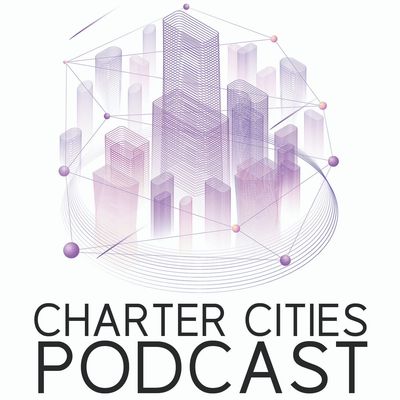The Charter Cities Podcast explores how charter cities can help solve some of the largest challenges of the 21st century, from urbanization to global poverty to migration. Each episode Mark Lutter interviews experts in international development, new cities, finance, entrepreneurship, and governance, to develop a better understanding of the various aspects of charter cities If you want to learn more visit the Charter Cities Institute at https://www.chartercitiesinstitute.org/
https://www.chartercitiesinstitute.org/
episode 31: The Making of Nigeria with Feyi Fawehinmi
Today’s guest is Feyi Fawehinmi, author of Formation: The Making of Nigeria from Jihad to Amalgamation. Feyi joins us on the show to talk about the period of history in Nigeria that his book covers and we kick things of hearing our guest talk about his reasons for writing the book. After the Civil War in Nigeria, there was a cultural prohibition on developing a sense of history because of the risk of upsetting an unstable political equilibrium. This combined with a very demographically young country means that many people, therefore, don't know the history of the formation of their state. After providing the context behind the book, Feyi dives into the events it covers, beginning in 1804 with a Jihad led by the Fulani in the northwest part of today's Nigeria which led to the Sokoto caliphate. Feyi takes us through the effects of this Jihad, the role of the ending of the transatlantic slave trade, and the events that led up to European colonization. He gets into the tactics the British used to take over and rule Nigeria and then brings us right up to the present moment in Nigeria. After weighing in on some of the current tensions around migration and oil, Feyi gives us his perspectives on whether we can still expect Nigeria to be a state in 30 years. Wrapping up on a more positive note, we speak about Nigeria’s status as a tech hub and hear Feyi’s views on why this might be.
Key Points From This Episode:
• A biased telling of history in Nigeria after the civil war and how Feyi’s book corrects this.
• The situation in Nigeria where Feyi’s book starts from; the waging of a state-building jihad in 1804.
• Local slavery practices in Nigeria during the caliphate versus how Europeans treated slaves.
• The role of the ending of the transatlantic slave trade in events in Nigeria.
• Tsetse flies making animal husbandry difficult and the main role of slaves in Nigeria for transportation.
• How missionary educated slaves returned to Nigeria and became a new elite.
• The bargain struck by the new elite to stop violent neighboring tribes which led to colonization.
• Events that led to the formation of the Hausa-Fulani and Feyi’s definition of ethnic groups.
• The diverse amount of languages and ethnic groups in Nigeria and the movements that led to this.
• The power play between Europeans in Nigeria and what led to them heading inland.
• The role of the maxim gun and the Berlin conference in the spread of colonialism in Nigeria.
• Joseph Chamberlain’s approach and how the Europeans developed and governed Nigeria.
• Why Britain ended up deciding to amalgamate North and South Nigeria.
• The difference between French and British colonialism and the after-effects on former colonies.
• The current situation in Nigeria; weaponization of civil war and discrimination against Igbo people.
• Climate change causing Fulani migrations to feed cattle and the tensions this is causing.
• Feyi’s perspectives on whether Nigeria will still be a state in 30 years.
• Thoughts from Feyi on why Nigeria is such a tech hub.
Links Mentioned in Today’s Episode:
Feyi Fawehinmi on Twitter
Formation: The Making of Nigeria from Jihad to Amalgamation
